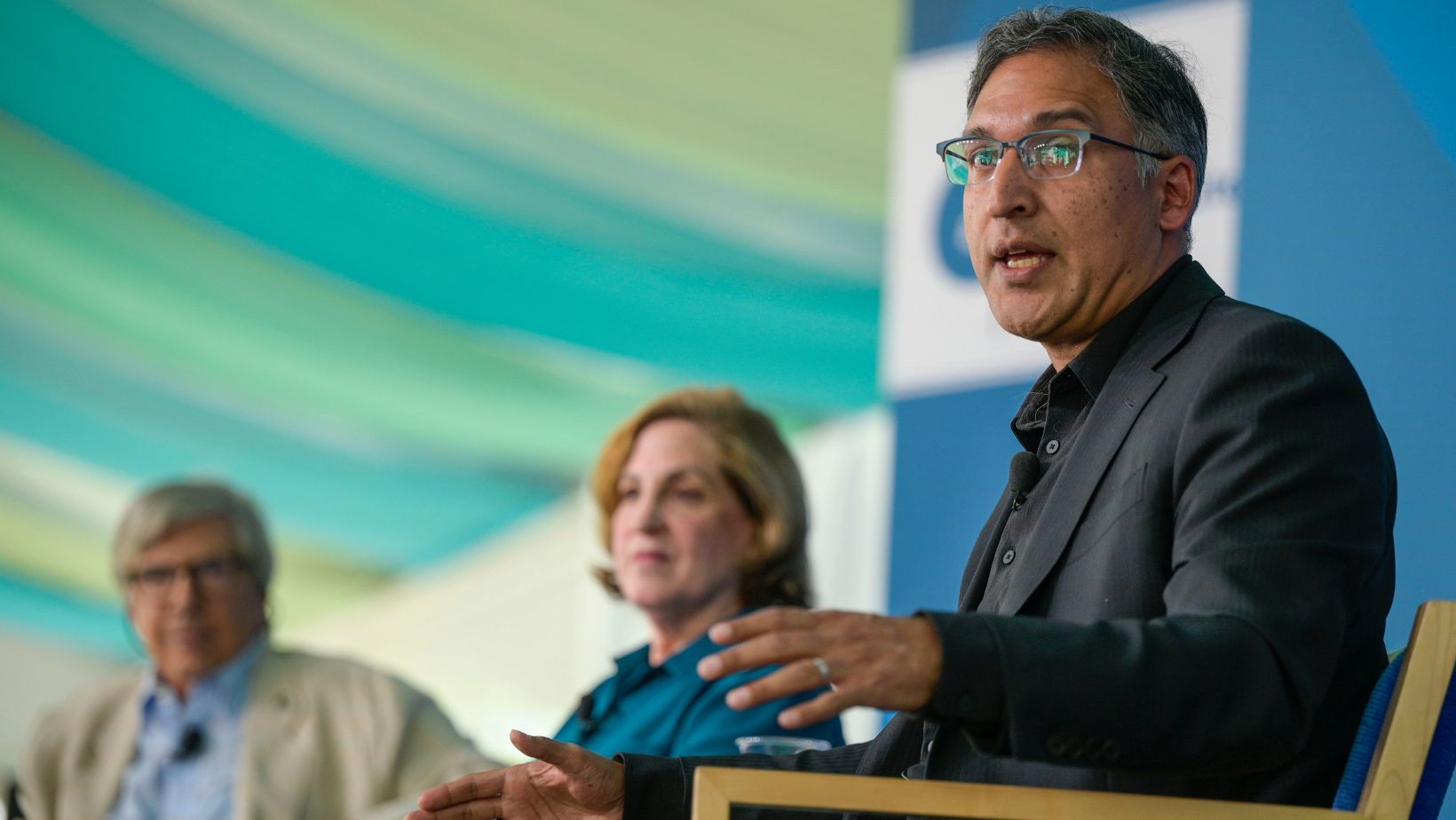
At a recent Aspen Institute Justice & Society Program event in Washington, DC, law professor Sheldon Krantz said the legal profession is at a pivotal moment in history. (Photo Credit: Steve Johnson)
A few weeks ago, my wife was out having a drink with a group of friends after work. She mentioned that her loving husband — yours truly — was back at home working on law school applications. “Wow. … There are people who still think that’s a good career choice?” a friend-of-a-friend blurted out. “I mean, honestly, have you seen the statistics?”
The statistics are not pleasant. According to The New York Times, “In 2012, law schools graduated a record number of new lawyers — more than 46,000. About half of them got long-term, full-time jobs requiring a legal degree.” Even graduates of some top-20 law schools have difficulty finding a legal job in the current market. The nonprofit organization Law School Transparency reports that nine months after graduation, just 73.2 percent of the Georgetown Law class of 2012 had obtained long-term, full-time jobs requiring bar passage, while 12.8 percent were underemployed. The prospects are downright dire for graduates of less high-profile schools. Take a few others in Washington, DC, for comparison: American University (38.9 percent employment; 39.1 percent under-employment for class of 2012) and the University of the District of Columbia (23.7 percent employment; 41.9 percent under-employment).
Given this context, I went into the recent Justice & Society Program panel discussion, “Imbalanced Scales: Why There is an Access-to-Justice Crisis in a Nation with Too Many Lawyers,” expecting to hear law professors Sheldon Krantz and Mitt Regan, as well as Judge David Tatel, tell us that the sky is falling. What I heard instead surprised me.
Krantz, author of “The Legal Profession: What is Wrong and How to Fix It,” called this a “pivotal moment in the history of the legal profession.” Currently, high-quality legal representation tends to go to wealthy individuals and huge, powerful corporations that can afford to pay the hourly rates of $370-$530 that big law firms typically charge. The number of deep-pocketed clients willing to pay these rates is dwindling, and the current supply of lawyers is simply too great for this limited demand.
However, a broad swath of the American population is not being served. Eighty percent of the legal needs of the poor go unmet, according to the Legal Services Corporation. Civil cases are particularly a problem. In New York City, for example, 99 percent of tenants in eviction cases and 97 percent of parents dealing with child support matters lack legal counsel. Krantz contends that the US actually has too few lawyers to meet the needs of the general population.
Thousands of young lawyers are searching for employment, and millions of Americans need legal services. So what’s wrong? Lack of funding is a major barrier. Prospective lawyers enter law school aspiring to do public service and pro bono work, but leave three years later with tens, perhaps hundreds, of thousands of dollars in debt. Providing legal aid to the poor does not provide an easy way out of the red.
How can we address this? The participants in last week’s discussion provided a number of suggestions. Tatel challenged lawyers to accept collective responsibility for ensuring that every American has access to a lawyer. He called on the legal profession, through the American Bar Association and state and local bars, to use its extensive resources as a $280 billion annual industry to meet the funding gap that remains after publicly-funded legal services and pro bono hours from individual lawyers have been exhausted.
Regan said that the current unemployment crisis offers an opportunity for small and mid-sized firms to opt out of the profits-per-partner arms race, stop trying to compete for the highest-end clients, and instead develop alternative business models based on providing affordable legal services to small businesses and the middle class. He also suggested that the legal profession needs to shift its focus away from preventing unauthorized legal practice and instead seek innovative, cost-effective ways of providing services — for example, creating online templates that provide basic legal assistance for free, or training non-lawyers to provide legal aid in certain civil matters. Law schools have a part to play, too. Students need to be equipped with practical skills, not just abstract doctrines, so that they are able to go out and offer useful services immediately upon graduation.
Far from causing me to abandon my dreams of a career in law, the panel discussion inspired me. The current legal employment and access-to-justice crises, while daunting, also create exciting opportunities for innovation and reform. Krantz, Regan, and Tatel offered a welcome reminder that the legal profession is not a normal commercial business, but a serving profession with a mandate to provide the entire population with the accessible justice on which our system of governance depends. The challenge for the rising generation of lawyers is to make progress toward this lofty ideal.
Joseph DeMott is Project Manager of the Justice and Society Program’s Inclusive America Project.

